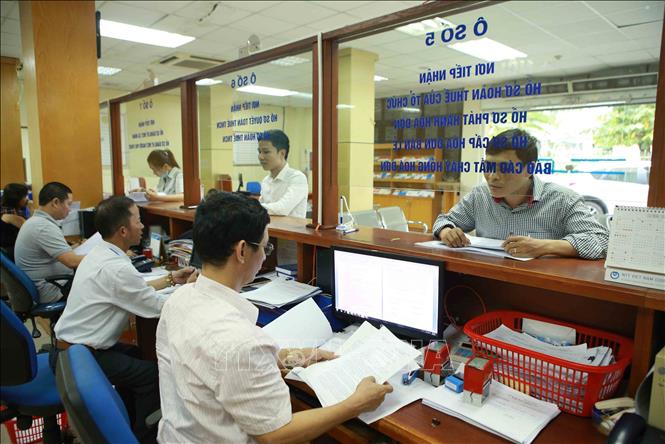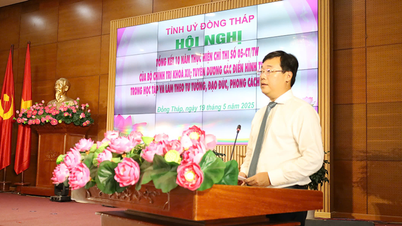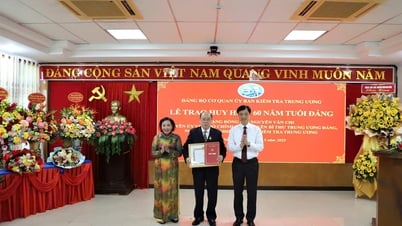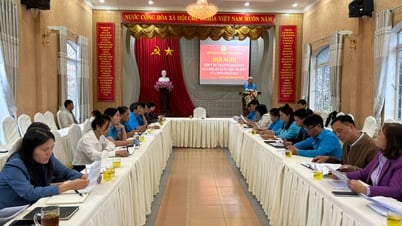(kontumtv.vn) – The Ministry of Finance is seeking comments on the draft Resolution of the National Assembly on reducing value-added tax to stimulate consumption, in line with the current economic context, thereby supporting people and businesses, promoting production, business, tourism and domestic consumption development.

Accordingly, the draft proposes to continue reducing value added tax by 2% from July 1, 2025 to December 31, 2026, applicable to groups of goods and services currently subject to a tax rate of 10% (remaining at 8%), except for the following groups of goods and services: Telecommunications, financial activities, banking, securities, insurance, real estate business, metal products, mining products (except coal), goods and services subject to special consumption tax (except gasoline).
This draft also expands the scope of the 2% VAT rate reduction for a number of groups of goods and services such as washing machines, microwave ovens, data processing services, prefabricated metal products such as barrels, tanks and metal containers, boilers, etc. In particular, gasoline and oil are also expected to be added to the tax reduction group because these are important items that directly impact domestic production, consumption and macroeconomic stability.
According to the Ministry of Finance, reducing value-added tax will contribute to reducing the cost of goods and services, thereby promoting production and business and creating more jobs for workers, contributing to stabilizing the macro economy and economic growth in the last 6 months of 2025.
Along with that, reducing the price increase will help people - the direct beneficiaries of this policy - directly reduce people's costs in consuming goods and services serving people's lives.
In particular, for businesses, a 2% reduction in value added tax will contribute to reducing production costs and lowering product prices through businesses that produce and trade goods and provide services that are entitled to a reduction in value added tax, leading to a reduction in the selling price of goods and services for consumers, thereby helping businesses increase their competitiveness, increase consumption of goods and services, and expand production and business, contributing to creating more jobs for workers.
Therefore, the Ministry of Finance emphasized that continuing to implement the policy of reducing value added tax is really necessary.
However, the Ministry of Finance also said that the reduction in value-added tax is expected to reduce state budget revenue in the last 6 months of 2025 and the whole year of 2026 by about 121.74 trillion VND; of which the last 6 months of 2025 will decrease by about 39.54 trillion VND, and in 2026, it will decrease by about 82.2 trillion VND).
According to the Ministry of Finance's assessment, reducing value-added tax has the effect of reducing value-added tax revenue but also has the effect of stimulating production, promoting production and business activities, thereby also contributing to creating additional revenue for value-added tax.
In order to compensate for the revenue shortfall due to policy implementation, the Government focuses on directing ministries, central agencies and localities to carry out tasks, solutions and fiscal policies according to the Resolutions issued by the National Assembly and the Government to remove difficulties for businesses and people, promote GDP growth drivers in 2025 to reach at least 8% and strive for double digits in more favorable conditions, thereby creating additional revenue sources for added value.
In addition, it is necessary to be resolute in collecting value-added tax, strengthening management, inspection, examination, reforming administrative procedures, promoting digital transformation in tax management, especially in key areas and fields, collecting from land, real estate transfer, e-commerce activities, business activities on digital platforms, etc.
In addition, strictly manage value-added expenditures, increase expenditure savings; proactively use reserves, reserves and other legal resources to spend on prevention and control of natural disasters, epidemics and urgent tasks arising according to regulations, ensuring budget balance at all levels.
Previously, the VAT reduction policy was implemented from 2022 to present, aiming to support people and businesses to recover from the COVID-19 pandemic. Over the past three years, the value of support from this policy has reached VND123,800 billion. In the first two months of this year alone, the VAT reduction is estimated at VND8,300 billion.
Source: https://kontumtv.vn/tin-tuc/kinh-te/de-xuat-tiep-tuc-giam-thue-gia-tri-gia-tang-2-den-het-nam-2026





![[Photo] Prime Minister Pham Minh Chinh chairs conference to promote public investment growth momentum](https://vphoto.vietnam.vn/thumb/1200x675/vietnam/resource/IMAGE/2025/5/20/7d1fac1aef9d4002a09ee8fa7e0fc5c5)




















































































Comment (0)